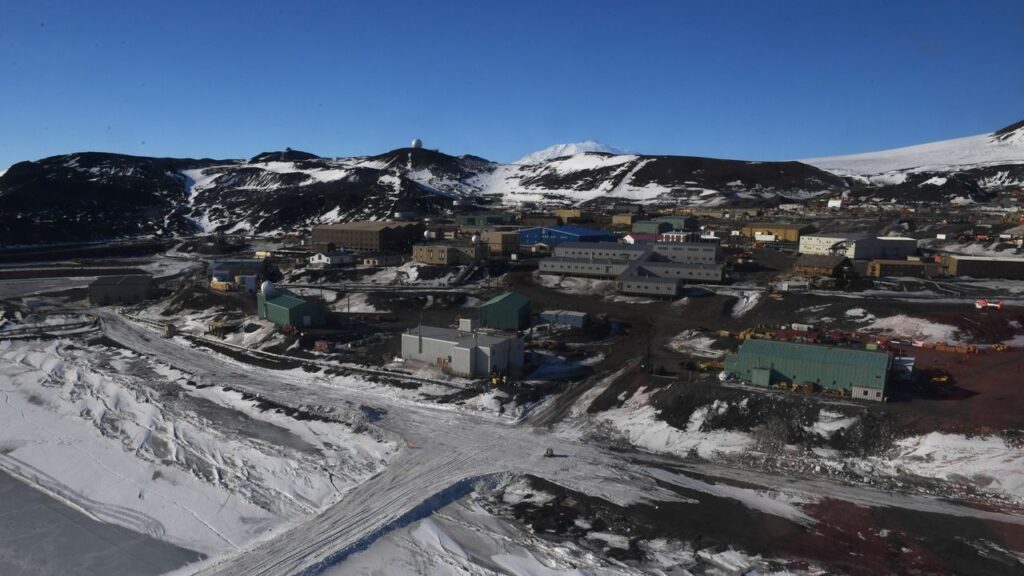
A recent survey conducted by the U.S. National Science Foundation (NSF) revealed that over 40% of respondents experienced sexual assault or harassment during Antarctic research expeditions. This troubling finding raises concerns about the implications for future outposts on the Moon and Mars, which share similar isolated and confined conditions.
The NSF released the report in July 2023, pledging to collaborate with participants and other organizations working in remote environments to improve assessment, prevention, and follow-up measures. An NSF spokesperson emphasized the foundation’s commitment to fostering a culture free from sexual violence in all NSF-funded activities, particularly within the U.S. Antarctic Program (USAP) community.
Researcher and former NSF participant Asa Rennermalm, a physical geographer at Rutgers University, described the survey as “an important step” in addressing harassment issues that have often been overlooked. She highlighted the critical role of such surveys in documenting lived experiences that have been ignored for too long.
The NSF survey, which involved 2,760 individuals associated with the NSF Office of Polar Programs from 2022 to 2024, found that approximately 25% completed the survey, yielding significant insights into the prevalence of harassment. Among those who completed a “victimization inventory,” 40.7% reported experiencing at least one instance of sexual assault or harassment. Notably, over half of those affected (59%) were female.
A separate “bystander inventory” revealed that nearly 70% of respondents had witnessed an incident of sexual misconduct, with 44.5% noting that the most recent incident was part of a pattern of behavior. The NSF classified incidents into four categories: sexual harassment and stalking, unwanted sexual attention, sexual coercion, and sexual assault.
Antarctica serves as a model for future exploration to the Moon and Mars due to its extreme environment, similar to what astronauts will face. The concept of Isolated, Confined, and Extreme (ICE) environments encompasses locations where individuals work far from usual support systems.
Research on ICE environments has been ongoing for decades, focusing on how to support individuals in these challenging settings. A study published in 2021 in the journal Neuroscience & Biobehavioral Reviews emphasized the importance of selecting and training teams with strong leadership and coping skills for long-duration missions.
Historically, NASA has prioritized ICE studies to enhance conditions for astronauts. Crews are subjected to rigorous training in various environments, including underwater habitats and wilderness excursions. Additionally, astronauts in space maintain regular communication with psychologists and are allocated rest days for personal activities to promote well-being.
The scrutiny of the USAP intensified following a 2022 report by the NSF regarding sexual harassment and assault. The House Committee on Science, Space, and Technology initiated an investigation, identifying “serious deficiencies” in how the NSF managed the USAP and recommending remedial actions. This committee has been investigating various issues, including harassment, since 2017.
The NSF’s survey findings not only highlight the urgent need for change within the Antarctic research community but also serve as a potential framework for understanding and addressing similar issues in future space missions. The foundation is committed to utilizing the survey results for continuous improvement, emphasizing the importance of tailored prevention strategies based on specific environmental dynamics.
Recommendations from the survey include increasing formal reporting and informal disclosures, enhancing bystander intervention training, and improving supervisors’ engagement in prevention efforts. The NSF has already begun implementing some of these recommendations, including better tracking of incidents and creating dedicated resources for participants who have experienced sexual violence.
As the NSF continues to review these findings and their implications, the foundation remains focused on taking effective actions to ensure a safer environment for all participants involved in its programs.






